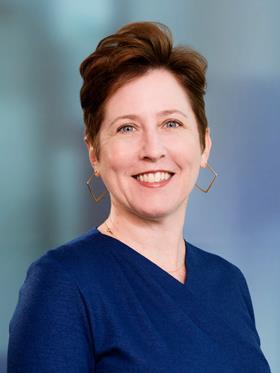With most firms now back in the office at least part of each week, what have senior partners learned during the pandemic and what skills are they leaning into as they transition to managing their teams and client relationships in a hybrid environment?
It is clear that partners believe that more is being expected of them than ever before. The pandemic exacerbated this. As one corporate partner put it, 'the pandemic has meant that the measures of our competence have increased to include the ability to juggle managing clients and teams remotely, whilst seemingly enjoying endless video calls and demonstrating total mastery of transactions, failing Wi-Fi connections and Amazon deliveries.'


Now, with the return-to-the-office, partners are striving to blend what they learned during the pandemic with the experience they had built up before it began.
While they are more comfortable on Zoom than many would have believed possible two years ago, they also know the value of being in person – for training, mentoring, osmotic learning and building long-term relationships with colleagues and clients.
They recognise that during the pandemic they had to draw heavily on existing relationship capital. While there were instances of relationships being strengthened – going to meet a client in their garden or taking a walk with a colleague – in most cases those reserves have been depleted and they are now focused on topping those up and helping others who weren’t in the workplace pre-pandemic to start to build that relationship capital too.
As one restructuring partner commented: 'Building relationships is harder over Zoom. The gradual return to physical office presence, in person meetings and international travel will allow people to…build relationships and alliances in ways that have not been possible for the last 24 months.'
Partners have changed the way they manage their teams. This has been a notable area of partner growth that has survived the return to the office. Initially, partners focused on pastoral support and bolstering team morale. That is now shifting into making sure everyone gets the right experience and attention.
Leading in this new way requires more thoughtful and deliberate action to create opportunities and give support. It also means trying to understand the flexibility expected by, and mindset of, more junior lawyers and those about to enter the profession.
Most importantly, leading in this new way requires greater levels of emotional intelligence, more listening and a willingness to try new things whilst also sharing the benefit of their experience.
With the fast pace of change that continues to come from all directions, there is a sense that it was those who relish uncertainty who had and will continue to thrive.
An adaptive mindset and a curiosity about the world demonstrably helped the most successful meet the challenges of greater expectations from clients and their teams. It also helped them position themselves to seize opportunities as they arise and quickly create new ways of working effectively with their teams.
As one litigation partner put it: 'It’s about how fast you accept that things have changed fundamentally – and are unlikely ever to return to what we had before.
Do you realise the water’s getting hotter or are you a slowly-boiling frog? Those who really embrace the opportunities of this turn-everything-on-its-head new world will really thrive, but it takes courage to challenge our previously accepted norms.'
The CLLS Training Committee’s next event will be on Monday 9 May and the topic will be coaching as a development tool. For more details see the CLLS website later this month.
Julia Robinson and Kirsty Wilkins, City of London Law Society’s Training Committee
































2 Readers' comments